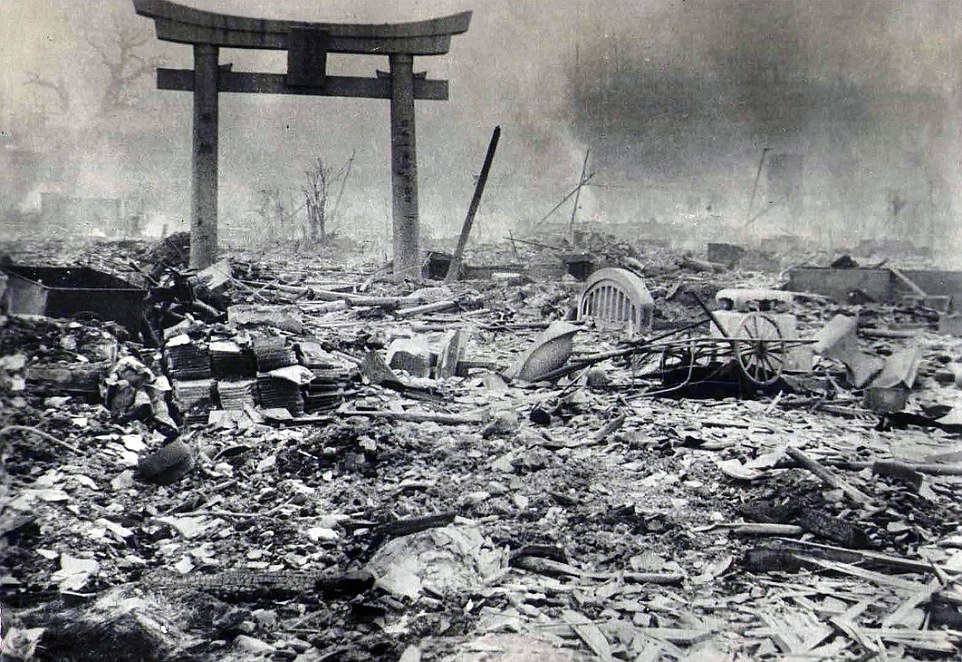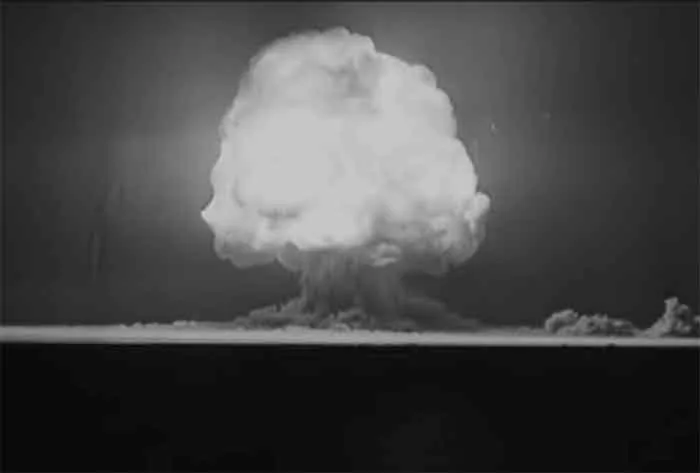
During the 1962 Cuban Missile Crisis, the central issue was how short America’s available reaction-time to a Soviet blitz nuclear attack would be and whether it would be too short for America to respond before America’s leader, JFK, would be able to press the nuclear button and retaliate against such a Soviet nuclear first-strike (from so near a location as Cuba). That time-interval would have been about 30 minutes, and Kennedy told Khrushchev that that would be unacceptably short and so if Khrushchev would go through with his plan to place his missiles in Cuba, then America would preemptively launch our nuclear warheads against the Soviet Union. Khrushchev decided not to do it. WW III was thus averted. But now we’re potentially down to around 5 minutes, in the reverse direction, and almost nobody is even talking about it.
The present version of that threat (to the entire world) started in 2010, when U.S. President Barack Obama (who had just won the Nobel Peace Prize for his rhetoric) met privately in the White House with the then newly and democratically elected President of Ukraine, Viktor Yanukovych, who had just been elected by Ukrainians on a platform of continuing into the future the geostrategic neutrality of Russia’s next-door neighbor Ukraine regarding the continuing goal of the U.S. Government to conquer Russia. Yanukovych refused to assist America in that regard, but would also not oppose it; Ukraine would remain neutral. Later that same year, Obama’s Secretary of State Hillary Clinton met privately with Yanukovych in Kiev, and the result was the same: Ukraine would remain neutral regarding Russia and the United States. Then, in 2011, two agents of the CIA-created Google Corporation, Eric Schmidt and Jared Cohen, who happened to be personal friends and associates of Ms. Clinton (plus some of those men’s close associates), met privately with Julian Assange for a ‘friendly’ visit allegedly in order to quote him in their upcoming book, The New Digital Age: Transforming Nations, Businesses, and Our Lives how to stir up and organize a grass-roots movement online so as to enhance democracy. Only later did Assange recognize that he had divulged to them tips that were subsequently used by the U.S. State Department and CIA to organize the coup that overthrew Yanukovych in February 2014. Assange then headlined in October 2014, “Google Is Not What It Seems”. That’s when Assange noted, “Jared Cohen could be wryly named Google’s ‘director of regime change.’”
This coup (called ’the Maidan revolution’ or “Euromaidan”) started being organized inside the U.S. Embassy in Ukraine by no later than 1 March 2013, but Wikipedia says instead: “Euromaidan started in the night of 21 November 2013 when up to 2,000 protesters gathered at Kiev’s Maidan Nezalezhnosti and began to organize themselves with the help of social networks.” (Nothing was mentioned there about the U.S. Embassy’s having organized them.)
The U.S. Government had also engaged the Gallup polling organization, both before and after the coup, in order to poll Ukrainians, and especially ones who lived in its Crimean independent republic, regarding their views on U.S., Russia, NATO, and the EU; and, generally, Ukrainians were far more pro-Russia than pro-U.S., NATO, or EU, but this was especially the case in Crimea; so, America’s Government knew that Crimeans would be especially resistant. However, this was not really new information. During 2003-2009, only around 20% of Ukrainians had wanted NATO membership, while around 55% opposed it. In 2010, Gallup found that whereas 17% of Ukrainians considered NATO to mean “protection of your country,” 40% said it’s “a threat to your country.” Ukrainians predominantly saw NATO as an enemy, not a friend. But after Obama’s February 2014 Ukrainian coup, “Ukraine’s NATO membership would get 53.4% of the votes, one third of Ukrainians (33.6%) would oppose it.” However, afterward, the support averaged around 45% — still over twice as high as had been the case prior to the coup.
In other words: what Obama did was generally successful, it grabbed Ukraine, or most of it, and it changed Ukrainians’ minds regarding America and Russia. But only after the subsequent passage of time did the American neoconservative heart become successfully grafted into the Ukrainian nation so as to make Ukraine a viable place to position U.S. nuclear missiles against Moscow. Furthermore: America’s rulers also needed to do some work upon U.S. public opinion. Not until February of 2014 — the time of Obama’s coup — did more than 15% of the American public have a “very unfavorable” view of Russia. (Right before Russia invaded Ukraine, that figure had already risen to 42%. America’s press — and academia or public-policy ‘experts’ — have been very effective at managing public opinion.)
Back in 2012, when Obama was running for re-election, against Mitt Romney, that figure was still remaining at 11%, where it had been approximately ever since Gallup had started polling on this question in 1989. So, Obama, and the U.S. Congress, and the newsmedia owners who had sold all of those poliiticians to the American public, had a lot of work yet to do after Obama’s re-election in 2012. During that political contest, Obama was aware of this fact, and used it to his own advantage against the overtly hyper-anti-Russian candidate, Romney.
A major reason why the American people re-elected U.S. President Barack Obama, instead of elected a new President Romney, was Romney’s having said of Russia, on 26 March 2012,
Russia, this is, without question, our number one geopolitical foe. They — they fight every cause for the world’s worst actors. … Russia is the — the geopolitical foe.
Not just “a” geopolitical foe, but “the” geopolitical foe.” (Wow! In a world with growing jihadist movements, such as Al Qaeda and ISIS?) The prior month, Gallup had polled, and reported that 11% figure; so, Romney was jumping the gun a lot on this, maybe because he was more concerned about fundraising than about appealing to voters. He knew he would need lots of money in order to have even a chance against Obama.
Obama responded to that comment mainly at the re-election campaign’s end, by springing this upon Romney during a debate, on 22 October 2012:
Governor Romney, I’m glad that you recognize that Al Qaida is a threat, because a few months ago when you were asked what’s the biggest geopolitical threat facing America, you said Russia, not Al Qaida; you said Russia. In the 1980s, they’re now calling to ask for their foreign policy back because, you know, the Cold War’s been over for 20 years.
Obama’s campaign had very successfully presented himself as NOT being like Romney (even though he secretly WAS). Lies like this had, in fact, won Obama his 2009 Nobel Peace Prize. But now he won his re-election. He was an astoundingly gifted liar.
Regarding the incident on 26 March 2012, when Obama spoke with Russian President Dmitriy Medvedev at the South Korean “Nuclear Security Summit”, Politifact reported:
In March 2012, at a summit in South Korea, Obama was caught in a “hot mic” incident. Without realizing he could be overheard, Obama told Russian President Dmitry Medvedev that he would have more ability to negotiate with the Russians about missile defense after the November election.
“On all these issues, but particularly missile defense, this, this can be solved, but it’s important for him [the incoming President Putin] to give me space,” Obama was heard telling Medvedev, apparently referring to incoming Russian president Vladimir Putin.
“Yeah, I understand,” Medvedev replied.
Obama interjected, saying, “This is my last election. After my election, I have more flexibility.”
So: Obama was telling Putin there, through Medvedev, that his next Administration would soften its stand on America’s installing in eastern Europe, near and even on Russia’s borders, missiles that are designed to disable Russia’s ability to retaliate against a U.S. nuclear first-strike — the U.S. ABM or anti-ballistic-missile system and the nuclear weapoons that America was designing.
Obama wasn’t lying only to America’s voters; he was shown there privately lying to Putin, by indicating to Medvedev that instead of becoming more aggressive (by his planned ABMs, and super-advanced nuclear fuses) against Russia in a second term, he’d become less aggressive (by negotiating with Putin about these matters — as you can see there, the nub of the issue was George Herbert Walker Bush’s lie to Mikhail Gorbachev in 1990).
Whereas Cuba was around 30 minutes away from nuking Washington DC., Ukraine would be around 5 minutes away from nuking Moscow. No other country is that close to Moscow. This is probably the main reason why, on 24 February 2022, Putin finally decided to invade Ukraine. But even if he wins there, Finland is only 7 minutes away from Moscow. And Finland was one of the Axis powers in Hitler’s Operation Barbarossa invasion against the Soviet Union between 25 June 1941 and 19 September 1944; so, Finland’s rejoining the nazi alliance now would certainly pose an even greater danger to Russians than Cuba’s joining the Soviet alliance posed to Americans in 1962. But this time, the aggressor-nation in the matter is the U.S. and its allies, not Russia, and yet Russia is responding with far less urgency than America had done in 1962. We’re still on borrowed time, borrowed now from Russia.
To all this, a friend has replied to me:
Completely invalid analogy. Having Russian missiles in Cuba in the early days of ICBM technology was to the USA what having USA missiles in Turkey was to Russia. The crisis was resolved when both countries agreed to withdraw their missiles. Made sense in those days. Today, the technology is such that proximity of launch sites to targets is irrelevant.
However, some of America’s top nuclear scientists don’t share that view, at all, but its opposite. They concluded, on 1 March 2017:
The US nuclear forces modernization program has been portrayed to the public as an effort to ensure the reliability and safety of warheads in the US nuclear arsenal, rather than to enhance their military capabilities. In reality, however, that program has implemented revolutionary new technologies that will vastly increase the targeting capability of the US ballistic missile arsenal. This increase in capability is astonishing — boosting the overall killing power of existing US ballistic missile forces by a factor of roughly three — and it creates exactly what one would expect to see, if a nuclear-armed state were planning to have the capacity to fight and win a nuclear war by disarming enemies with a surprise first strike.
Starting in 2006, the predominant American meta-strategy has been called “Nuclear Primacy” — meaning to attain the ability to win a nuclear war — not merely what it had previously been (M.A.D. or “Mutually Assured Destruction”): to prevent one.
Apparently, the latest fashion in U.S. Government and academic thinking, about this ‘competition’, is, first, to dismember Russia. They even sell this goal as embodying America’s “commitment to anti-imperialism.”
Even after the lies that got us to invade Iraq, America’s public seem to have learned no lessons.
Investigative historian Eric Zuesse’s next book (soon to be published) will be AMERICA’S EMPIRE OF EVIL: Hitler’s Posthumous Victory, and Why the Social Sciences Need to Change. It’s about how America took over the world after World War II in order to enslave it to U.S.-and-allied billionaires. Their cartels extract the world’s wealth by control of not only their ‘news’ media but the social ‘sciences’ — duping the public.












































